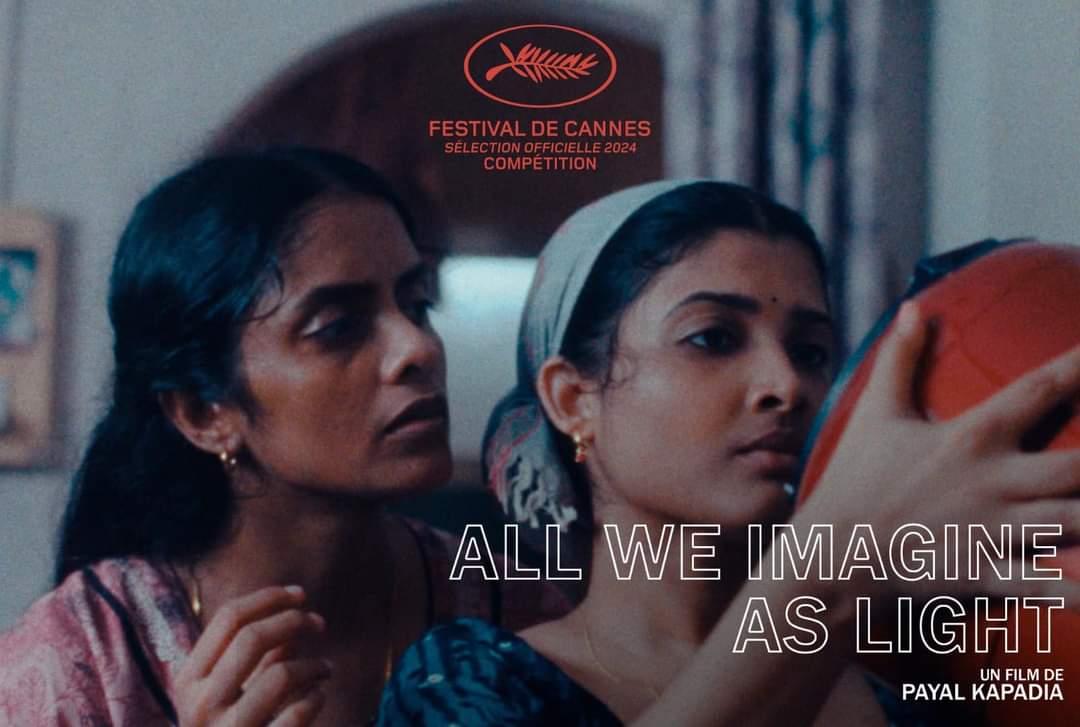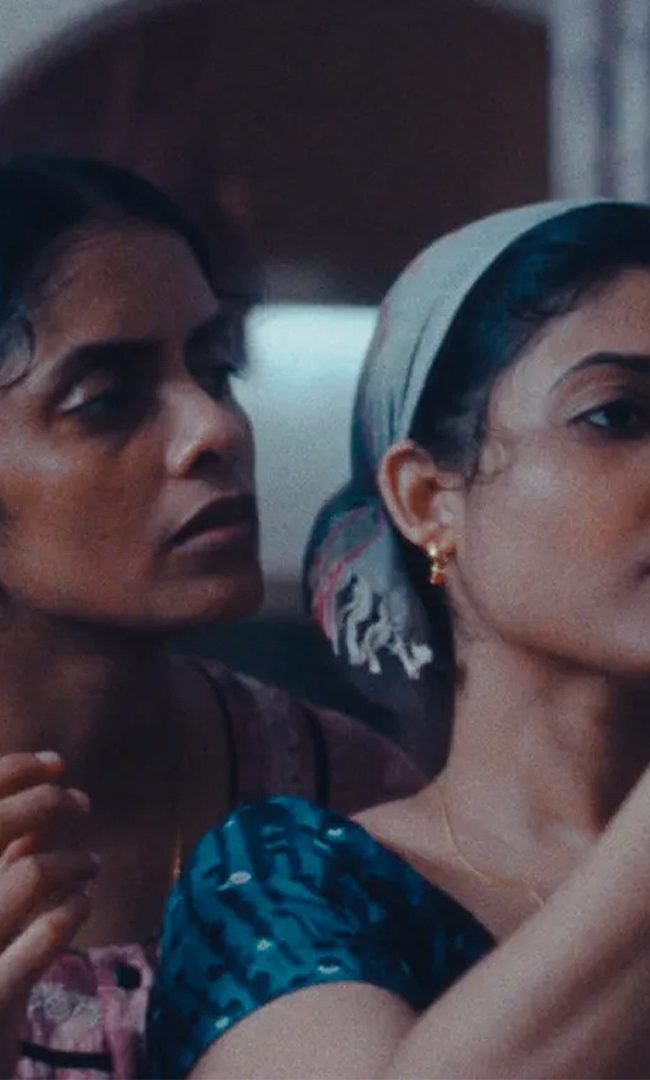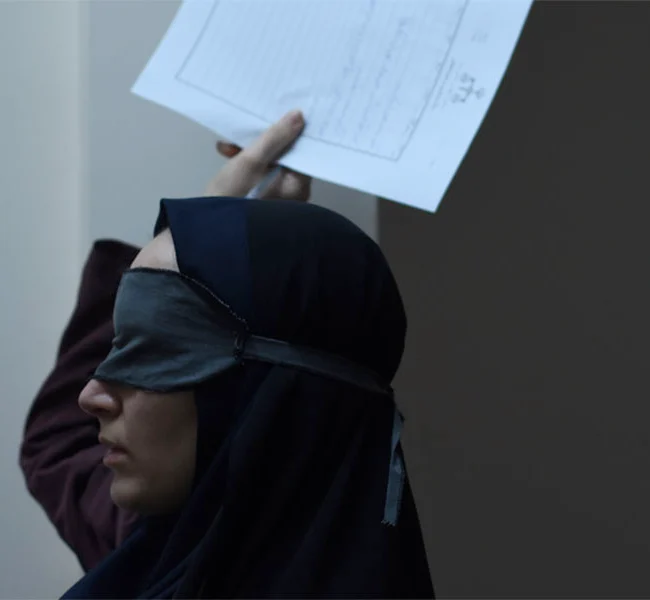ALL WE IMAGINE AS LIGHT

(The 2024 New York Film Festival (NYFF) runs September 27-October 14. Check out Matt Delman’s All We Imagine As Light movie review from the fest. Seen it? Join the conversation with HtN on our Letterboxd Page.)
A tender, lyrical drama about roommates Anu (Divya Prabha) and Prabha (Kani Kusruti) who might as well be sisters, All We Imagine As Light will move you. Directed by Payal Kapadia who has roots as a documentarian, and lensed by her husband Ranabir Das, the story contrasts two couples; one of forbidden love and another of absence. Prabha’s husband is working in Germany and sends home an elegant air-fryer. Anu is Hindu but in love with a Muslim boy, and she can only hide it for so long. Questions of fate are probed but left unanswered in this luminous Cannes Grand Prix winner. It will certainly win your heart, and hopefully more awards along with it.
The film can be sliced into two parts, the first follows the women working in a hospital in Mumbai. Prabha tells the younger nurses to toughen up when a placenta is passed around for training purposes. There’s also a dorkily handsome doctor who courts Prabha in the gentlest way possible. He writes her a poem, which she later reads in the middle of the night and we hear it in his calm voiceover–a bravura touch. Later on they sit on swings in the dark and she rejects him, displaying loyalty to her missing husband. Prabha has the opposite problem. She’s infatuated with Shiaz (Hridhu Haroon) who happens to be Muslim. Her parents have been sending her portraits–which Kapadia shows on screen–of more suitable partners.
The second section of the film takes place at the beach, somewhere between Mumbai and Goa, where there is little infrastructure and no hospital. So when a man washes up on the beach, it’s up to nurse Prabha to resuscitate him. All We Imagine as Light is a title that sounds like a magic trick, and Kapadia pulls one off in the third act that is too good to give away here. Only upon second viewing will you realize it’s foreshadowed by the opening scene of the film.
The original soundtrack by Topshe uses a recurring piano tune that sounds straight out of Mississippi Masala (1991). The blending of cultures is seen through Das’ cinematography, which depicts the Mumbai masses moving through daily life. He focuses on textures and has a penchant for overexposure, which also ties in with the title. Kapadia’s formal artistry can also be seen in the way she plays with sound, such as in a scene where Anu plays with her stethoscope and we hear the world filtered through the device.
Much of the film takes place in the rain, which can signal new beginnings, but in this case may just be mood enhancing. Prabha and another older woman Parvaty (Chhaya Kaddam), representing a third generation, get up to some antics by throwing rocks through a billboard for a new development. The billboard reads, ‘Class is a privilege.’ Kapadia is a wise filmmaker and knows how to subtly imbue her story with social issues and worldly themes that resonate without feeling force-fed. On top of all this, the film is exceedingly romantic. Anu and Shiaz have an innocent first-love-type chemistry that provides the heart of the film, whereas Prabha reflects a more practical ethos. When the three women all share a bottle of whiskey at the beach, you’ll want to join them, because life is too short.
– Matt Delman (@ItstheRealDel)
New York Film Festival; All We Imagine as Light; Payal Kapadia











